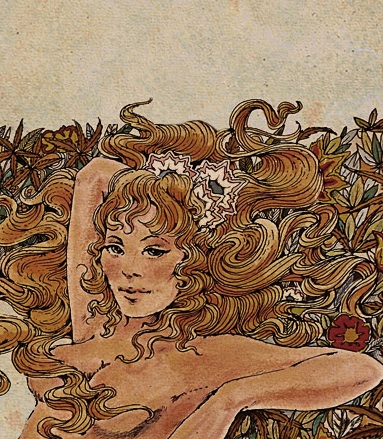This is the editorial note to TNI Vol. 15: Weed. View the full table of contents here.
Subscribe to TNI for $2 and get Weed (and free access to our archive of back issues) today.
***
I head up the executive branch; we’re supposed to be carrying out laws. And so what we’re going to need to have is a conversation about how do you reconcile a federal law that still says marijuana is a federal offense and state laws that say that it’s legal.
When you’re talking about drug kingpins, folks involved with violence, people who are peddling hard drugs to our kids in our neighborhoods that are devastated, there is no doubt that we need to go after those folks hard... it makes sense for us to look at how we can make sure that our kids are discouraged from using drugs and engaging in substance abuse generally.
— Barack Obama, official response to White House petitions to legalize marijuana
If the high didn’t solve whatever it was that was getting you down, it could at least help you laugh at the world’s ongoing folly and see through all the hypocrisy and bullshit and cheap moralism.
— Barack Obama, Dreams from My Father
According to White House Drug Czar Gil Kerlikowske, it’s “clear that we’re in the midst of a serious national conversation about marijuana.” What it means to be in the midst of a national conversation — whether that conversation be on guns, race, or weed — no one really knows, except that it indicates an ideological stalemate that policymakers would rather not address. But with voters in Washington and Colorado moving to legalize — over the halfhearted objections of their Democratic officials — American drug policy faces the biggest sea change since Richard Nixon began the war on drugs more than 40 years ago.
If we’re going to have a big family meeting about weed, then we’ve got some places to start, as with Volume 15 we glance behind the bead curtain at America’s relationship with marijuana. Any conversation about marijuana policy has to start with the vicious effects of criminalization, so Natasha Lennard interviews sociologist Harry Levine on what he calls a national scandal on par with nuclear disaster. Justifying 700,000 annual arrests, 70 percent of them of people under 25 and 60 percent black and Latino, marijuana possession laws are the the U.S. police state’s practical foundation. Levine questions whether reform compromises will get to the root of the problem or further entrench the racial discrepancies that already characterize the law’s enforcement.
Marijuana legalization has already had some unintended and unexpected consequences, even for non-smokers. Laurel Braitman talks with veterinarian Andrew Springer Browne on why Washington and Colorado are seeing more pets with THC poisoning, learning that getting your dog high is not nearly as cool as it sounds. Meanwhile, Danielle King goes behind the scenes with a successful dealer, whose client base and market could be headed for some changes. When Americans can buy weed at clean, well-lit dispensaries, what will happen to the dude now taking your orders? But as long as smoking dope is a crime, we want our readers to know the law and the best practices for dealing with the police, which is why we have a supplement from privacy rights advocate Kade Crockford.
Though much practiced, the tradition of watching movies and television while stoned has gone drastically under-theorized. Teen lifestyle advice guru Dr. Teens remedies this dreadful error with a phenomenological investigation of stoned cinema that goes beyond the predictable stoner genre picture. And if you’ve ever wondered how strains of bud get names like Cat Piss or Alaskan Thunderfuck, Whitney Mallet’s history of pot nomenclature has answers. Finally, lest we leave the past too far behind, Andrew Beccone of the Reanimation Library digs into the archive for the hippies, scientists, and peddlers of moral panic of 20th century weed culture.
In the reviews section, Aaron Bady looks at the newly translated novel The Tuner of Silences, by Mia Couto, and asks if the term “magical realism” does world literature any good. It’s No Good, suggests the title of the Russian poet Kirill Medvedev's new book, referring to something else entirely. In his review of Medvedev’s first English-language collection, Zack Friedman appreciates the poetry but less the politics of this “first post-Soviet writer.”
There’s a zero percent chance that America is going to have any chat about weed without some giggles. Laughter isn’t just an effect of the drug; it’s the only rational response to a president who belonged to the smoking club “Choom Gang” and says he truly believes we should still imprison people for getting high. Here in New York, Michael Bloomberg jokes to the cameras about inhaling and enjoying it even as he uses prohibition to justify a street war against the city’s black and brown youth. So long as gay marriage corners the market on liberal self-righteousness, policy makers can still get away with laughing off pot. But if the president was right and weed helps you see through hypocrisy, bullshit, and cheap moralism, America is going to have to be as stoned as hell for this national conversation.

